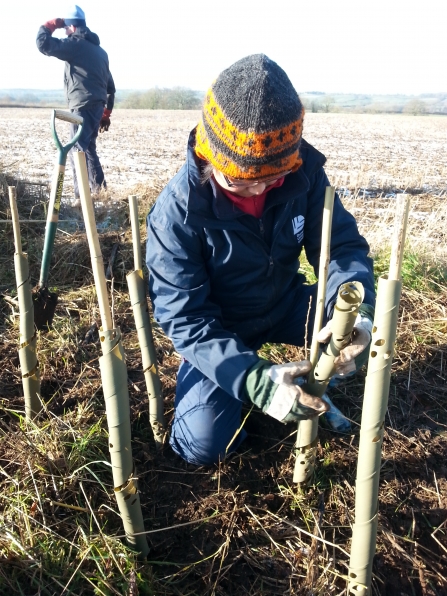It was a Monday morning and I received the good news that I had passed my City & Guilds Diploma in Work-Based Environmental Conservation. I looked on this with a real sense of satisfaction after nine months of hard but enjoyable work. I was a mature student working on a career change, so not your average trainee. A few years ago you would have found me poring over the accounts of large US companies as a Chartered Accountant. It was interesting and challenging, for sure, but I never got the sense that I was making a real difference in the world. Now I am the only qualified, ethnic Chinese conservationist at Warwickshire Wildlife Trust.
The Diploma course offers a wide range of modules running from path-making to coastal management, but I chose those focusing on three broad areas:
- Woodland Habitat Management
- Field surveys
- Working with volunteers
There is not much call for coastal management skills in Warwickshire but the Dunsmore Living Landscape project I was working for was involved in developing and enhancing woodland habitats. Taking the surveying modules enabled me to build up grass and flora recognition skills to enrich my bird spotting hobby. I was also working with volunteers through another project: The Environment and Me, which provided experiences and opportunities to draw on. These modules seemed to naturally consolidate my working experiences and opportunities from these two projects.
To gain the extra experience required, I had to volunteer on my non-working days, write up diary sheets and study the background for the knowledge questions in my own time. I really enjoyed being outdoors, making an impact for wildlife and learning new skills. I am grateful to my Dunsmore line-manager for giving me this opportunity and for all those colleagues who supervised and supported me through the course. The project was only required to train four full-time trainees, so I was the unofficial, bonus, fifth trainee.
On the way, there were memorable moments: such as attempting grass identification during a torrential downpour; planting a lengthy mixed-species hedge at Ryton Pools Country Park; and the amazing experience of hedge-laying I described in another Explore Dunsmore post, which you can read here.
One day I was asked to plan and lead a Wild Wellbeing Walk at Coombe Abbey Park and this provided an opportunity to draw on all the things I had learnt about in my studies. I had to do my own site risk-assessment, plan the route, advertise the event, put together a quiz to engage the participants and make sure I did not lose anyone on the day!
The course also provided an excuse to join in with a bat walk at Brandon Marsh Nature Reserve as assistant leader. I found myself traipsing across the reserve in the unfamiliar darkness, bat detector in hand, with a group of adults and children who were just as excited as I was to experience the hidden world of nocturnal mammals doing what they do. Moments like these can open people’s eyes to the wonder of the natural world around them and maybe create future conservationists.
With this qualification I now feel like a proper conservationist. I hope that this achievement inspires others, especially those with an ethnic-minority background, to respond to any conservation opportunities available to them and to make a difference as well.
Man-Lan Adams

